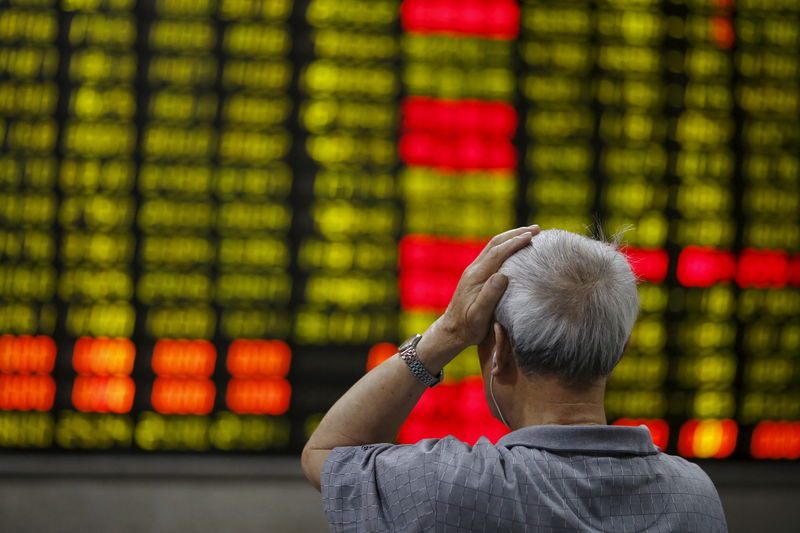This post was originally published on this site
https://i-invdn-com.investing.com/news/LYNXMPEB5F0CM_M.jpg
Investing.com – Asia Pacific stocks were mostly down on Thursday morning. Concerns that central banks will become more hawkish in their monetary policies to curb inflation, and impact the economic recovery from COVID-19, also dampened investor sentiment.
Japan’s Nikkei 225 fell 0.84% by 21:55 PM ET (2:55 AM GMT) and South Korea’s KOSPI edged down 0.18%.
In Australia, the ASX 200 edged up 0.13%.
Hong Kong’s Hang Seng Index slid 1.46%.
China’s Shanghai Composite was down 0.39% and the Shenzhen Component fell 1.03%, with China Evergrande Group saying that it would sell its stake in HengTen Networks Group for $273 million.
U.S.-China relations were also in the spotlight, with Singaporean Prime Minister Lee Hsien Loong warning that tensions between the two countries over Taiwan could lead to a “mishap or miscalculation.” U.S. President Joe Biden also raised the need for conversations on nukes during his virtual summit meeting with Chinese counterpart Xi Jinping earlier in the week.
Treasuries steadied after ending higher during the previous session, with an auction of 20-year notes finishing below expectations.
U.S. inflation hit a record 30-year high in October, as indicated by data released during the previous week. This has raised concerns that the U.S. Federal Reserve will begin asset tapering and hike interest rates faster than expected in response.
“With these most recent inflation readings, there is some concern that the Fed will reduce the amount of purchases, in other words, accelerate asset tapering. That would be a surprise to markets and could induce some volatility,” State Street (NYSE:STT) Global Advisors chief investment strategist Michael Arone told Bloomberg.
Investors also await U.S. President Joe Biden’s decision on who will chair the Fed after incumbent Chairman Jerome Powell’s term expires in February 2022. Powell and Fed Governor Lael Brainard are currently in the running for the job.
Although both candidates hold similar opinions on monetary policy, Brainard is expected to be a bit more dovish, which means “longer-term rates would be lower for longer,” helping technology stocks, said Arone.
Investors now await comments from Fed Vice Chairman Richard Clarida and Fed Bank of San Francisco President Mary Daly at the Asia Economic Policy Conference, due to take place on Friday.

